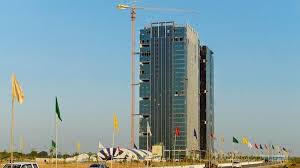
India's Global Commodity Trading Ambitions
India is poised to carve out a significant role in global commodity trading, with GIFT City positioned as its trading hub. K. Rajaraman, the chairperson of the International Financial Services Centres Authority (IFSCA), recently highlighted this ambition, emphasizing that for India to become a manufacturing powerhouse, it must also participate actively in the global commodity market.
The commodities earmarked for trading at GIFT IFSC range widely, including electronic components like resistors and chips, energy products such as hydrogen and crude oil, and high-volume agricultural items like rice and edible oils. This diverse portfolio aims to attract a variety of traders and investors.
In August, an expert committee submitted a report analyzing established global commodity trading jurisdictions. The findings underscored the necessity for India to develop a competitive trading ecosystem, as the current trend sees significant transactions funneled through offshore centers. This not only diminishes India's influence over global pricing but also results in lost economic opportunities, job creation, and tax revenues.
In response to these findings, Rajaraman stated that recommendations have been made to the government, which may require amendments to existing laws. Key suggestions include revising the Banking Regulation Act to allow GIFT IFSC banks to engage in broader commodity trading beyond just bullion and recognizing commodity trading as a financial service. Furthermore, extending the tax holiday for IFSC units from 10 to 25 years is also on the table.
Globally, notable commodity trading centers include Singapore, the UAE, the UK, and Zurich. Rajaraman pointed out that despite Switzerland's lack of oil production, it hosts some of the largest oil trading hubs. This serves as an inspiration for India, suggesting that many trading activities could be revitalized within its borders.
Currently, GIFT IFSC facilitates spot trading of gold and silver through the India International Bullion Exchange (IIBX). As the initiative develops, Rajaraman anticipates a broader range of commodity trading, which could significantly enhance India's economic landscape and establish it as a vital player in the global market.











